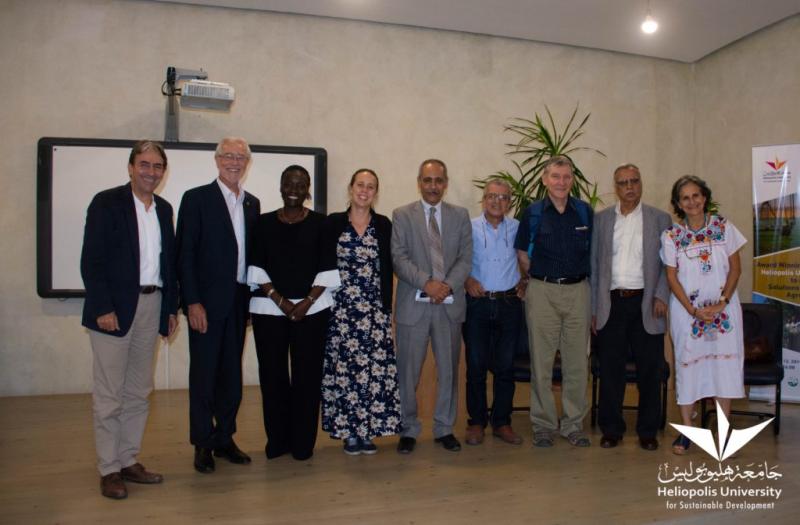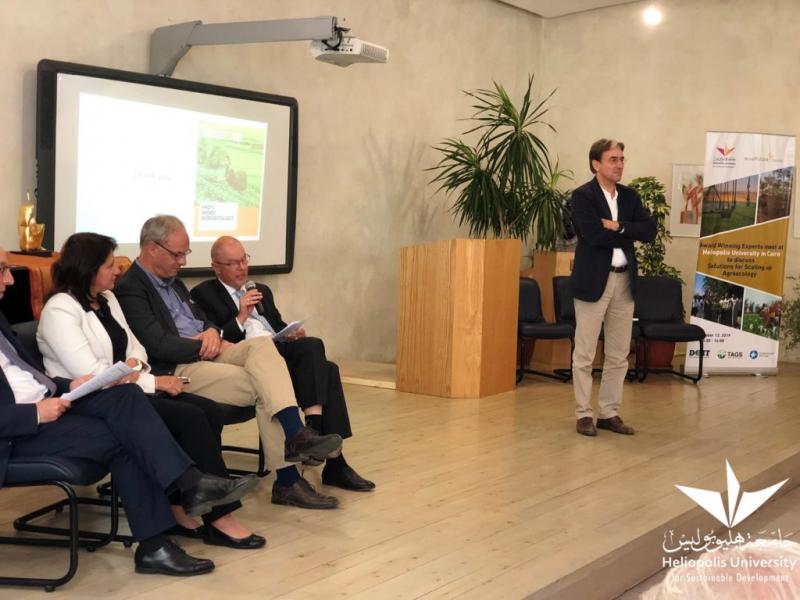Last Thursday, the World Future Council Members, three Alternative Nobel Prize winners, government representatives from Egypt and Germany, scholars, experts in the field of agroecology, and international associations’ heads got together in a conference which took place in Heliopolis University to discuss solutions for scaling up agroecology.
But what does agroecology actually mean? The definitions are wide, but what is more important than agreeing on definitions, is that the world food system is able to feed 7.7 billion people but there are still more than 800 million people who go hungry. This is what Dr. Jean-Marc Faurès, Regional Program Leader, and FAO Regional Office for the Near East and North Africa, focused on during his presentation on agroecology. The agroecology system among others aims to transform the food system according to ecological and sociocultural principles and contexts Several keynote speakers explained how they were putting agroecology in practice, even unaware of the term and its definition. “I discovered that I’m in the field of agroecology, while I had only relied on common sense!” said Auma Obama, Councilor at World Future Council and Director of the Sauti Kuu Foundation in Kenya.
Outstanding practices in Agroecology
Several initiatives have presented their approach. Hence, Helmy Abouleish showcased the holistic work of SEKEM within the four main dimensions of life, explaining: “Compost was a huge factor in revitalization desert land, but that wasn’t the miracle. The miracle needed the Economy of Love to govern in a fair, sustainable and beneficial way. Even then, that wasn’t enough because without the unfolding of individual potential, a community cannot develop and the other way around.”
Some of the other initiatives were the “100% organic state” of Sikkim in India which won this year’s “Oscar for best policies” (the Future Policy Gold Award), the start-up Technology for Agroecology in the Global South (TAGS), Farmer Managed Natural Regeneration in Niger and Sauti Kuu Foundation in Kenya. Through these initiatives, it was explained that for a sustainable agroecology, there’s a need for development in financial, technical, organizational and practical approaches. “For greening landscapes, mindscapes need to be greened first,” as Tony Rinaudo, 2018 Right Livelihood Award winner expressed.
The conference aimed to identify the challenges of scaling up agroecology to face them, and to support policy makers in solving those challenges. One of the suggested solutions was to direct the prices of products to their real production costs. “Organic agriculture and products cost less than their conventional counter if all the external costs as for instance for environmental pollutions are considered We need to educate people on the true cost accounting and for that to happen, everyone needs to take responsibility and play a part,” explains Helmy Abouleish. And as Dr. Hassan Abou Bakr, Professor at the Faculty of Organic Agriculture at Heliopolis University, concluded: “We humans are not on the top of the ecosystem pyramid like we act many times; we are rather one part of a huge ecological web.”
Nadine Greiss



